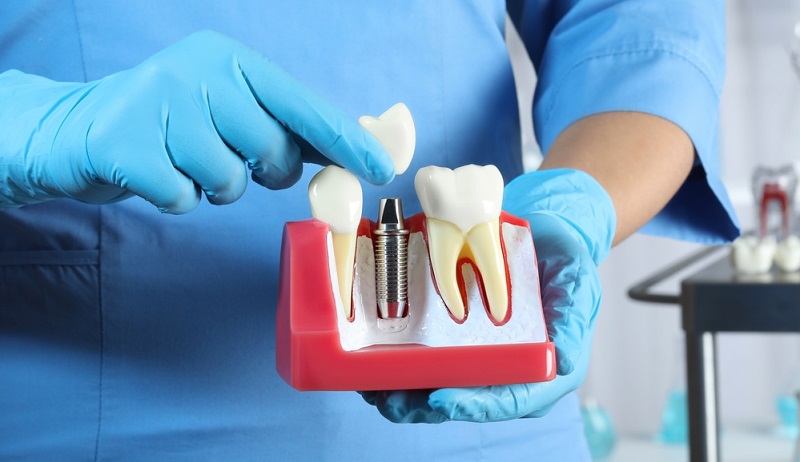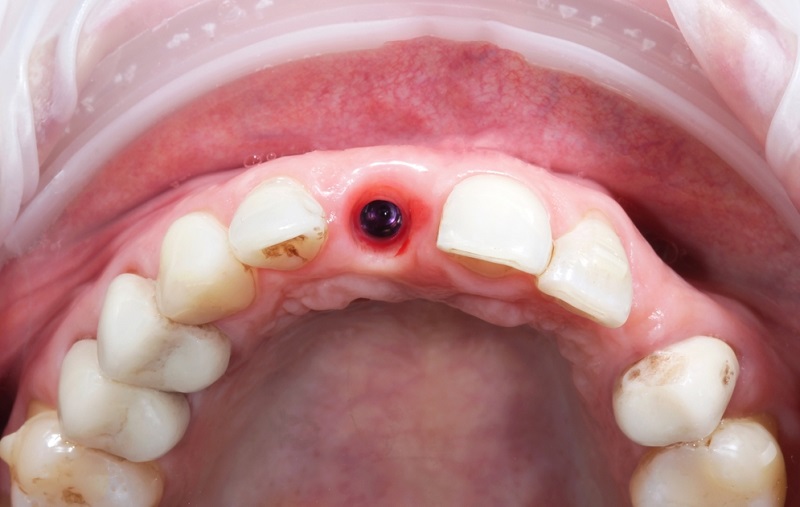Bad Dental Implants: What Makes Dental Implants Fail?
Contents
- What is a Bad Dental Implant?
- Signs of Failed Dental Implants
- Causes of Failed Dental Implants
- Treatment Options for Failed Dental Implants
- Prevention Strategies for Avoiding Failed Dental Implants
Are you thinking about getting dental implants? While they are a popular and effective method of replacing lost teeth, they are not without risk.
Bad dental implants can lead to major complications ranging from infections to implant failure.

In truth, dental implants can go wrong and cause major difficulties in some cases.
Bad dental implants can have a substantial influence on your oral health and overall well-being, ranging from infections and pain to implant failure.
We'll look at what happens when dental implants fail in this blog post so you can make an informed decision about your oral health.
Continue reading to discover more, whether you're already suffering from issues or simply want to be prepared for the worst-case scenario!
What is a Bad Dental Implant?
When a dental implant is implanted in the jawbone, it must merge with the bone properly. If this does not occur, it is said that the implant "failed."
There are several ways for an implant to fail, but all of them require the implant to be removed and replaced.
When a dental implant fails, one of the following things is usually to blame:
Infection:
If an infection develops at the implant site, the implant must be removed. The most common reason for failing dental implants is infection.
Misaligned teeth:
If the teeth surrounding the implant are misaligned, they might exert pressure on the implant, causing it to fail.
Improper placement:
If the implant is not placed in the correct position, it can put undue stress on the surrounding teeth and eventually fail.

Signs of Failed Dental Implants
There are several signs of dental implant failure that you should be aware of:
1. Pain:
If you are experiencing pain or discomfort near your dental implant, this could indicate that the implant is failing.
2. Swelling:
Swelling near the implant site can potentially suggest an implant issue.
3. Infection:
An infection around the implant site might cause redness, swelling, and pain.
4. Looseness:
If the implant feels loose or moves when touched, this could indicate that it is failing.
5. Bone Loss:
If the bone around the implant begins to recede or shrink, this could signal that the implant is failing.
6. Gum Recession:
If the gum tissue around the implant begins to recede, exposing the implant and its metal post, could indicate implant failure.
7. Failure to integrate:
If your implant does not merge with your jawbone, it may become loose or fall out entirely.
If you notice any of these signs or symptoms, contact your dentist or oral surgeon right away for an evaluation.
Early intervention can help avoid further damage and improve the odds of implant replacement success.
Causes of Failed Dental Implants
Dental implants are a popular option for replacing missing teeth because they offer a natural look and feel. They are designed to be a long-term solution, blending seamlessly with your natural teeth.
However, like any medical procedure, dental implants come with their own set of risks. Understanding these risks is crucial for making an informed decision.
The failure rates for dental implants range from 5% to 20%. Although this might seem low, it's essential to be aware of the potential causes of failure.
Knowing these can help you take preventive measures and recognize early warning signs.
Let us see what are the major causes of Failed Dental Implants.
Infection
It’s no secret that infection is one of the primary causes of failed dental implants. In fact, infection is responsible for up to 65% of all implant failures.
There are several reasons why infections can occur after dental implant surgery, but the most common cause is bacteria entering the wound.
This can happen if the surgical site is not properly cleaned or if the patient doesn’t follow proper oral hygiene habits after surgery.
Another common cause of infection is peri-implantitis, which is an inflammation of the tissue around the implant. This condition is often caused by plaque buildup and can lead to bone loss and eventually implant failure.
Poor Dental Hygiene
If you don't take care of your teeth, you may end up with problems that could lead to failed dental implants.
Poor dental hygiene can cause tartar and plaque buildup, which can lead to gum disease.
If you have gum disease, your gums may become inflamed and start to pull away from your teeth.
This can make it difficult for your dentist to place the implant in your jawbone, and it may eventually cause the implant to fail.
Poor Oral Health
Several factors can contribute to failed dental implants, and poor oral health is one of the most common.
When you have poor oral health, your gums and bones are not as strong and healthy as they should be, which can make it difficult for dental implants to fuse properly with your jawbone.
Additionally, if you have periodontal disease or another serious oral health issue, it may be necessary to get treatment before getting dental implants.
Inadequate Jawbone Structure
The implant will eventually fail if your jawbone is not strong enough to sustain it. This can occur for several causes, including:
Some people are simply born with weaker bones than others.
- Damage: Serious damage to the jawbone might weaken it and make supporting an implant more challenging.
- Diseases: Diseases, such as osteoporosis, can weaken the bones and make them more prone to fracture.
Consult your dentist or oral surgeon if you are unsure whether your jawbone is robust enough for an implant. They will be able to assess your specific situation and determine whether dental implants are correct for you.
Improperly Placed Implant
Incorrectly placed dental implants can lead to several complications, each of which can significantly impact your oral health. Understanding these potential issues is crucial for preventing and addressing problems early on.
1. Infection:
One of the most common complications is infection. When an implant is not placed correctly, bacteria can accumulate around it, leading to an infection. This can be extremely painful and may require antibiotics or even surgery to treat.
2. Misalignment:
Misalignment is another frequent issue associated with improperly placed implants. If the implant isn't positioned correctly, it can affect the surrounding teeth, leading to difficulties in chewing and speaking. Misalignment also increases the risk of tooth decay and gum disease.
3. Damage to Neighboring Teeth:
An incorrectly placed implant can exert undue pressure on adjacent teeth, potentially causing damage or even breakage. This can result in additional dental problems and may require further treatment to correct.
4. Comprehensive Impact:
The combined effects of infection, misalignment, and damage to neighbouring teeth can lead to significant discomfort and additional dental issues.
Proper placement of the implant is critical to ensure the long-term success of the procedure and to avoid these complications.
Treatment Options for Failed Dental Implants
There are several reasons why dental implants may fail, and as such, there are some different treatment options available.
The most common cause of failed dental implants is an infection, which can be treated with antibiotics or in more severe cases, surgery.
Other causes of failed dental implants include misalignment, which can be corrected with surgery, and damage to the surrounding teeth, which can be treated with either tooth-coloured fillings or crowns.
Prevention Strategies for Avoiding Failed Dental Implants
Prevention is the key to avoiding faulty dental implants. A variety of techniques can be used to assist reduce the chance of implant failure, including:
1. Maintaining good oral hygiene:
Maintaining good oral hygiene is critical for preventing implant failure. Brush and floss regularly, and see your dentist for teeth cleanings and checkups.
2. Avoiding smoking:
Smoking is a major risk factor for implant failure. Quitting smoking or using other tobacco products is the most effective strategy to minimise your risk.
3. Eating a healthy diet:
Eating a healthy diet promotes good dental health and can lower the chance of implant failure. Consume plenty of fruits, veggies, and whole grains while limiting sugary and acidic foods.
4. Chronic condition management:
Chronic illnesses like as diabetes or autoimmune diseases might increase the chance of implant failure. If you have a chronic ailment, make sure to collaborate with your healthcare provider to properly manage it.
5. Selecting an experienced implant dentist:
When selecting a dentist for your implants, be sure they are experienced and have an excellent track record with this operation.
Dental implant treatment is a difficult process that necessitates careful consideration of numerous elements.
When any of these concerns, from infection to misalignment and beyond, are missed or not addressed effectively, the likelihood of failure increases considerably.
With the hand of a skilled dental staff, you can be confident that each step of your dental implant journey will be handled with great care and attention to detail, allowing you to experience long-lasting results.


